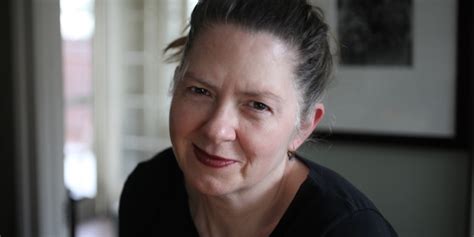A Quote by Robert Breault
Time brings an end to everything. We should not mistake for a tragedy what is no more than the passage of time.
Related Quotes
André Bazin wrote that art emerged from our desire to counter the passage of time and the inevitable decay it brings. But in “Boyhood,” Mr. Linklater's masterpiece, he both captures moments in time and relinquishes them as he moves from year to year. He isn't fighting time but embracing it in all its glorious and agonizingly fleeting beauty.
At the end of a criminal’s life, it’s always the small mistake, the coincidence, the lark. The time we got too comfortable, the time we slipped up, the time someone aimed a little to the left. I’ve heard Grandad’s war stories a thousand times. How they finally got Mo. How Mandy almost got away. How Charlie fell. Birth to grave, we know it’ll be us one day. Our tragedy is that we forget it might be someone else first.
To the distracting occupations belong especially my lecture courses which I am holding this winter for the first time, and which now cost much more of my time than I like. Meanwhile I hope that the second time this expenditure of time will be much less, otherwise I would never be able to reconcile myself to it, even practical (astronomical) work must give far more satisfaction than if one brings up to B a couple more mediocre heads which otherwise would have stopped at A.
Time interval is a strange and contradictory matter in the mind. It would be reasonable to suppose that a routine time or an eventless time would seem interminable. It should be so, but it is not. It is the dull eventless times that have no duration whatever. A time splashed with interest, wounded with tragedy, crevassed with joy - that's the time that seems long in the memory. And this is right when you think about it. Eventlessness has no posts to drape duration on. From nothing to nothing is no time at all.
The first time, I usually skim off the outer layer and end up with photographs that are fairly obvious. The second time, I have to look a little deeper. The images get more interesting. The third time it is even more challenging and on each subsequent occasion, the images should get stronger, but it takes more effort to get them.
Consider the word “time.” We use so many phrases with it. Pass time. Waste time. Kill time. Lose time. In good time. About time. Take your time. Save time. A long time. Right on time. Out of time. Mind the time. Be on time. Spare time. Keep time. Stall for time. There are as many expressions with “time” as there are minutes in a day. But once, there was no word for it at all. Because no one was counting. Then Dor began. And everything changed.
No mistake is more to be deplored than the conception that a system of morals and religion should derive any portion of its authority either from the circumstance of its novelty or its antiquity, that it should be judged excellent, not because it is reasonable or true, but because no person has ever thought of it before, or because it has been thought of from the beginning of time.
I think women assess time passage much better than men - because of their biological clocks - and they are much more realistic about measuring out time, whereas men tend to hang onto things. Women acknowledge the biology of their time, and dance through the beat of that drum...whereas men just drum.




































